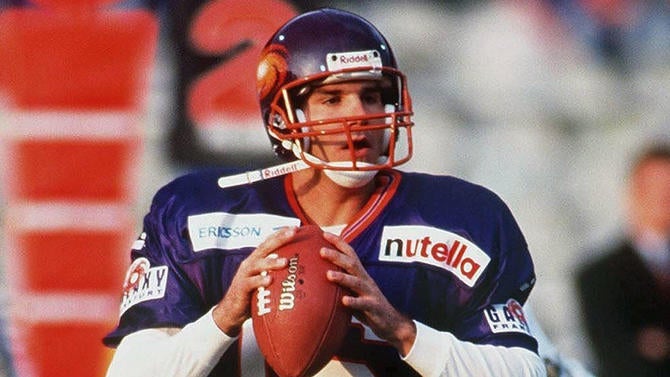The limos were lined up bumper-to-bumper around the sprawling driveway and the private planes waited on tarmacs nearby as NFL owners scrambled to get back home after wrapping up another league meeting.
In a nearby ballroom, commissioner Roger Goodell began addressing the media, his statements peppered with the standard rotation of buzzwords. The league and its member clubs were once again striving for greater "innovation" and ways to make professional football more inclusive and diverse.
Goodell made it clear that the demand for technological advancements in the way that games are played, officiated and consumed by fans was as strong as ever. Once again, at a spring meeting, the NFL was making alterations to how certain plays were regulated, seeking more clarity and uniformity with some ways in which the games are officiated. Goodell has also alluded to ongoing research into ways to make helmets and the sport safer. And after another year that featured record television ratings, the league officially returning to the Los Angeles market and with online broadcast rights in high demand, the business of the NFL remained decidedly robust.
The charge, to executives in the league office as well as to the owners themselves, was a familiar one, and the goals were similar as well. Bolster officiating. Find ways to get more women and minorities into coaching and front office roles. Focus on health and safety measures. Push to make the game better in every way possible.
Goodell's remarks were coming on the heels of a meeting in Boca Raton, Fla., in which competition committee head Rich McKay had detailed the scourge of procedural penalties along the offensive line that was bogging down play, and with NFL coaches again bemoaning the state of line play and quarterbacking around the league.
Goodell's spiel came following a free-agent flurry in which quarterbacks with nary a track record were getting nearly $40 million guaranteed, and during an offseason in which the demographics of the coaching ranks again skewed heavily Caucasian. He spoke at a time when there remain precious few opportunities for those who are not white and male to function in a true football decision-making capacity running organizations, and with teams still fuming over the bevy of high-profile botched calls from games in 2015.
And yet another meeting had passed without any meaningful discussion taking place about a concept that could serve to appease all of Goodell's buzzwords simultaneously, at least not a single discussion among those who actually have the authority to enact it (the owners).
All of the game's luminaries were gathered together in the same resort complex for days on end, and there was not a mention in any meeting room of restoring some sort of developmental league or academy that could address the issues of officiating, technological advances (in everything from helmets to microchips in footballs), and diversity in coaching and the front office all at once.
"It's not something we've really talked much about as a group," Giants owners Steve Tisch said shortly before he departed that March meeting in Florida. "I agree it sounds like a good idea, and something worth exploring. But it just isn't a priority at this point."

There were no formal conversations about how to find a way to replace the role that NFL Europe once played as an incubator for developing quarterbacks, linemen, coaches, scouts and executives.
There was more buzz about finding ways to buttress the sideshow that is the Pro Bowl than there was about truly addressing development, despite the glaring inefficiencies this league faces in those regards.
"It's been a long time since we looked at (a developmental league), almost back to (the demise of) NFL Europe, and when we looked at the value of NFL Europe," said McKay, the Falcons team president, alluding to a league that was discontinued in 2007.
"What we saw in NFL Europe was it definitely had an impact in (developing) some linemen and it definitely had an impact on (developing) officials. But it was very costly, and we began to transition pretty quickly to see we liked having more practice squad players than a developmental league."
However, conversations with prominent coaches, executives and owners have revealed that perhaps the climate is changing, and that a developmental league or academy will be much more of a front-burner issue in 2016.
Some prefer an offseason league that would replicate the World League/NFL Europe model domestically. Others envision an in-season academy in which teams could either assign players to or draw from rosters of players who would get substantial and meaningful on-field practice and coaching time -- far surpassing the scant scout team reps they would receive at the bottom of an NFL depth chart.
Either way, there is growing sentiment that something needs to be done.
Merely expanding the practice squad at a time when teams have a maximum of just 14 padded practices to utilize in-season and no two-a-days in camp, and with starters demanding the bulk of the reps, leaves a paucity of live work for the very players who need it most. The void is real.
These are glaring issues that need to be addressed in a more direct and profound nature, and while owners may still ultimately prove unwilling to sink big money into a developmental format, I have not encountered one football man who did not wholeheartedly agree that more time, energy and resources must be spent assessing the costs and benefits of a potentially bold venture.
"I agree with you across the board," said Stephen Jones, the Cowboys' executive vice president, CEO and director of player personnel, who also serves on the influential competition committee. "It is a concept that could check all of those boxes we often talk about -- diversity, officiating, developing coaches, player development, experimenting with rules and technology. It's something we have to start to seriously look at within the competition committee and then discuss with the NFLPA.
"We've reached a point where we really should be looking more at a developmental league, and I really expect that to begin here in the next year or so. We lost a lot of money on the NFL Europe, but there were a lot of things the league did well and for all of those reasons -- coaches, officiating, players, quarterbacks in particular -- it's something we really do need to be looking at and studying. The time might be right to do it."
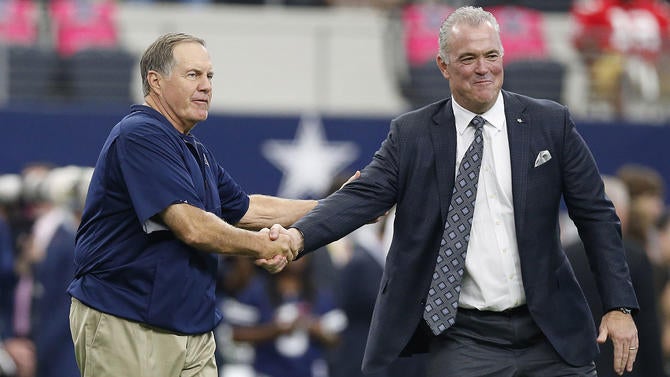
The in-season academy model
Troy Vincent, the NFL's vice president of football operations, said his department has performed analysis of potential developmental options, but that nothing has progressed beyond the meeting rooms of the Park Avenue offices to this point.
There has been nothing presented to owners during any meetings going back for nearly a decade. Nothing has ever approached a vote, and the focus the last few years has been on creating a blueprint for a fall academy that could serve to provide meaningful game experience and reps to players, coaches and officials who might not otherwise get any.
"This is the future of football," Vincent said of the need for a developmental cradle for players and team personnel. "These are defining issues for the league. This is the future of football. We're talking about human capital development. How do we cultivate these assets -- on the field and off the field?"
Vincent's department has received considerable support from people like the Rooney family, owners of the Steelers, from Panthers owner Jerry Richardson, as well as from general managers like the Seahawks' John Schneider and the Colts' Ryan Grigson, who have been among the most vocal behind the scenes about finding ways to address these issues.
Steelers owner Art Rooney II nodded his head along with me as I listed all the reasons why a developmental league could be a boon for the NFL. The football operations department continues to speak to former coaches, executives and even trainers from the NFL Europe days, gathering as much information as possible to determine the best format to address these issues.
"I agree with you on all of that," Rooney said. "It's something we have to really look at and address, whether it's a spring league or in some other way. We definitely need to work on developing players, we definitely need to work on developing officials, and it's something we really need to spend some time on, even if it's not necessarily a spring league, but some way to provide more time to develop players."
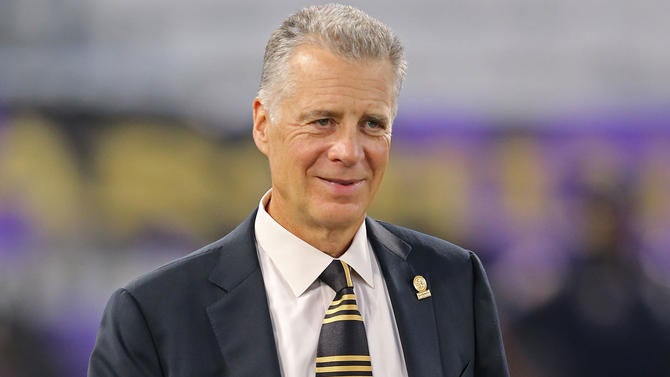
Vincent and his staff have spent considerable time trying to identify the best means to provide teams with a better group of reserves to draw from in-season. Shuffling players in and out on Tuesday for workouts, at a time many of these individuals are working real jobs and trying to stay in something close to football shape on the side, is less than ideal.
Vincent has sheets of cost-benefit studies on certain concepts they have mulled. Thus far, no formal proposals have been made; there is no plan that is ready to be recommended to owners as Vincent sorts through issues of how to assign players and where to draw them from.
"The in-season academy concept is something we are constantly exploring and researching," he said. "But what is the most viable location? Who are the ideal players? First year? Second year? Is it players who would already be on the practice squad? Are they players who are under contract or players who were the final guys released at the end of camp? Would the teams that had them in camp have some sort of rights to them? Are they assigned there by the teams?
"We're still exploring what would be the best way to go about it, and it's a collaborative effort that will have to include the union and players and coaches and owners at some point."
The league has discussed joining forces with IMG Academy, who have top-of-the-line workout facilities around the country, about potentially using them as in-season academies, weighing what kind of stipends could be provided and seeking a platform where prospects could get NFL-caliber coaching on a daily basis to make them more game-ready if and when they are needed by an NFL team.
The SWOT (strengths, weaknesses, opportunities, and threats) analysis the football operations department prepared on a possible developmental academy identifies why some member clubs might not be inclined to buy in on this idea, which in some ways might require them to share or expose player assets.
"Clubs may view their scouting departments as competitive advantages ... Academy may 'level the playing field,' which may compromise clubs perceived competitive advantages."
If players are in essence signed by the league at large to participate in the academy, how would they be assigned to teams? Would it work like the waiver wire? All of this is still very much being hashed out.
"There is no start date in mind as of yet," Vincent said of the ongoing studies into a developmental league or academy. "Because there are many considerations that impact the business of football, we will take our time and do this right. In addition to collaboration across the various departments in the league office, once we have a plan to move forward it must be vetted by our various committees such as health and safety and competition.
"In short, we believe further development of the vast pool of football talent is imperative to the future, and we are considering ways to do that economically and effectively, not only for players, but also coaches, trainers, officials and every aspect of the football universe. Their input is important in this development phase."
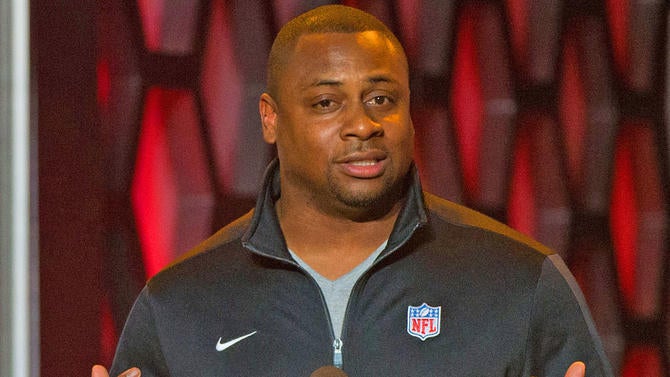
Vincent has also had numerous conversations with Canadian Football League executives about potentially expanding their connections, sources said. Some NFL officials will be working in the CFL this season, as previously announced, and while the NFL is conscious of never wanting the CFL to seem like a developmental league for them -- and that's not something the Canadian league has any interest in becoming -- there have been very preliminary discussions about ways to perhaps collaborate on player development in the future.
"Where are the opportunities for more synergy?" Vincent said. "Those are things we are considering."
Vincent gets excited quickly when talking about this topic, and it's easy to see how energized he is by the possibilities. He continues to discuss it with general managers like Schneider and Grigson -- and much more work has been done behind the scenes on this matter than many would expect. Honing that into a streamlined proposal that could get off the ground remains a challenge, but one an ever-changing football operations office seems intent on taking on.
Jones, Saints head coach Sean Payton and others volunteered that they hear increasing chatter about the potential for a spring league as well.
Spring developmental concept
Some of those rumblings have focused on the possibility of perhaps an eight-team academy or league that would play in the spring, perhaps all in Florida, with the teams requiring maybe as little one stadium to serve all for game days (with those game days likely coming twice a week).
Others have rumbled about possibly playing in SEC cities in the spring.
Some envision a system in which teams would submit lists of the players they would most want to get additional seasons in a developmental league, and then the NFL's football operations department assigns them to the spring teams to try to make for a balanced product.
Some see it as more of a direct minor league, where four teams would in essence share an affiliate that they send players to, and those teams would coordinate among themselves to ensure the roster is filled. Those teams would get the key players at certain positions groups they believe would benefit from the experience atop the depth chart (it is not unusual for NHL teams to share minor-league affiliates, for instance).
In this hypothetical league, each team would also submit young coaches and execs it would want to take on bigger roles in the spring league, one that for example could start a week or two after the Super Bowl and run for six weeks, and that would take on the spirit of what NFL Europe used to be while cutting down on costs by being streamlined domestically.
"We know, for example, that we have to be fiscally responsible," Vincent said. "We also know that any type of development league would need to fit in our offseason calendar and dates would need to coordinate with our combine system and the draft."
The NFL could experiment with additional cameras on the sidelines, putting microchips in footballs, and running trial balloons on rules changes and video replay alterations in the developmental league. With owners seemingly only wanting to hire offensive play callers as head coaches lately, and with so few African American coaches serving as offensive coordinators with full play-calling duties, this league would allow for opportunities not currently available.
An official from one NFL team who is intrigued by the idea believed if a league like this got off the floor, you could potentially have all female general managers in it.
"What you are talking about is improvement of personnel," Steelers coach Mike Tomlin said, "whether it's players, coaches, officials. I think that's a discussion that needs to be continually ongoing. We need to continue to ask the critical questions of how we can improve the game, and that's an element of it. I'm not an alarmist, but I do believe that is a decision that needs to be ongoing continually."
As for the players, the state of offensive line play has been driving coaches bonkers, with all the spread formations being used in college sending many of these youngsters to the pros without the fundamentals once taken for granted, and coaches believe a league like this could greatly hasten that learning curve.
And this offseason proved more than ever how scarce quarterbacks are, with ineffective starters like Sam Bradford getting $18 million a season and a bidding war erupting over Brock Osweiler, who played middling football this season in his first seven career starts, lost his job before the playoffs to a decaying Peyton Manning and then still received $38 million guaranteed.
NFL Europe served as an incubator for those positions, and consider of how many millions that would be saved if a spring league helped developed Jake Delhomme and Brad Johnson, Super Bowl quarterbacks who came from NFL Europe. The league was also critical in the development of future star kickers like Adam Vinatieri and David Akers, as well as punter Chris Hanson. Kurt Warner was a product of the Arena Football League.
Saints coach Sean Payton said he has discussed the concept with some other coaches from time to time, and he's reflected on the positives that came from NFL Europe with his peers who took part in that league (Payton did not play in NFL Europe but did spend the 1988 season as quarterback of the Leicester Panthers in a professional league in the UK).
Cowboys coach Jason Garrett, Jets general manager Mike Maccagnan, former Bills coach Doug Marrone and former 49ers coach Jim Tomsula are just a few men with roots in the World League of American Football/NFL Europe.
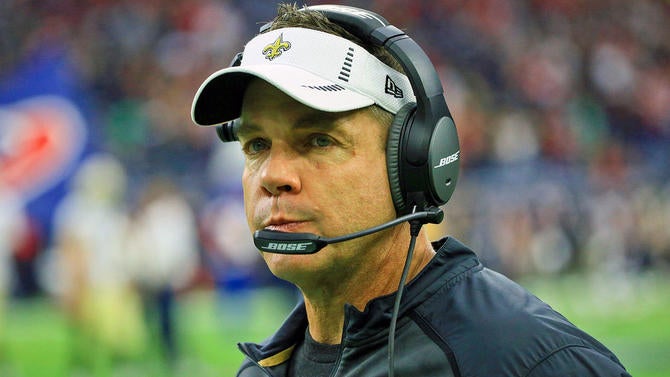
Even if a spring league did nothing more than expedite the development of a handful of quarterbacks, helping them go from marginal prospects to winning NFL passers, that alone would be a boon. There are simply not enough reps to go around, not enough opportunities to actually get them on the field in anything approximating a game situation, and with fewer and fewer college programs running traditional pro-style offenses, the problem appears to be growing.
"There is a value in that, there is such a value in that," said Payton. "And look, you are preaching to the choir here ... I do think just the quarterback position alone, the repetitions they get in a developmental situation is key, I believe. Delhomme, Warner, Brad Johnson, those are just a handful of guys coming from a league other than ours, and having success. We've seen it with (Joe) Theismann and seen it with (Warren) Moon, (Doug) Flutie. We've seen it from the CFL. But I do think they'll be something coming, and I think it'll be under our league's umbrella ...
"I think you're going to see that at some point now. It may be an international spring league, but one in which the club can call on it at any time to infuse a player into their roster midstream, and just as importantly, clubs can call on employees other than players, too. I think the officiating could benefit from it. There are number of things it gives you. Even if it's six or eight (teams) that 32 (NFL teams) are drawing on. With the World League, I don't remember how many teams there were, but a lot of people who were involved in that league -- a lot -- ended up in our league at some point."
Ravens coach John Harbaugh said he has discussed the possibilities for spring football with Hall of Fame coach John Madden and is now a big proponent of the idea himself. If this movement builds momentum, as many are projecting, he'd be among those invested in trying to see it through.
"John Madden has got me convinced that it would be great for football and for young players and young coaches and the officials," Harbaugh said. "It would be great for the game of football. And I kind of think the league wants to do it, it's just a matter of working out the details and we'll see where it goes ...
"I don't know why it hasn't happened to this point. I think the league wants to do it. There must be something blocking it. There must be some factors that are keeping it from going in that direction, because I've never heard anybody say they don't want to do it. So I think you'd have to ask the higher-ups in the league really what's holding it up."
Identifying the hurdles and weighing the costs
There is no shortage of possible impediments to launching such a league, in fact. Besides the costs -- and money will always be a pivotal role in something like this -- there are fundamental health and labor issues as well. If games are being played, then players are being injured, and issues of benefits and insurance come up. How willing would players be to participate, and could teams simply assign them to a league or academy?
At some point, these and others issues would have to be collectively bargained. There are obviously some potential big wins here for players, as more jobs would likely be created, more opportunities to grow and prosper as they hone their craft. Also, more chances to put their abilities on game film and potentially draw the attention of other teams and coaches.
But at what cost?
How would it work within the salary cap and how would any revenues be considered? Do players accrue service time while at an academy or lower league?
Incentivizing the NFLPA will become a key dynamic if this discussion grows this year in the manner owners like Rooney and Jones expect it to. To this point, union officials have had virtually no discussions about the concept internally and nothing with the NFL itself.
"They don't really ask our opinion on this kind of stuff," said George Atallah, the assistant executive director of external affairs for the NFLPA.
"Ideas like a developmental league or an in-season academy -- same thing with the veterans combine they were discussing -- I don't really think we have been brought into those discussions," Atallah said. "It's hard to say one way or the other what we would think. I know where it would fall under our purview and there are things we prefer, like increasing the practice-squad size -- that's an area we would get involved in.
"We're not really involved in that kind developmental stuff. But if they stayed under contract, what are the health and safety ramifications? I'm not sure we'd go for it. Are they going to get accrued seasons? We haven't seen any sort of proposals or details on a spring league and what that might look like. I've heard that's something they may want to explore, but are the players NFL employees? How are they compensated? All sorts of issues come into play."
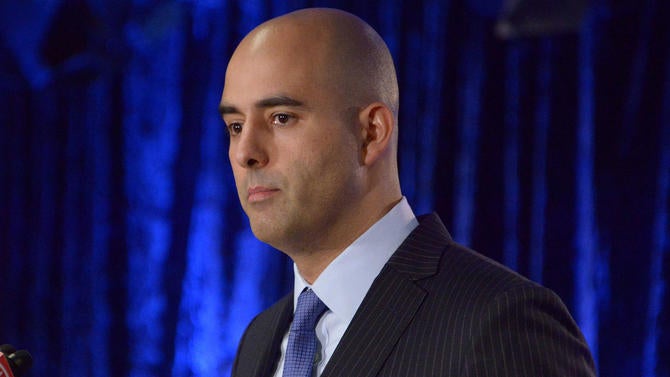
While Atallah and the NFLPA have not put much thought into considering these matters at length -- given their limited discourse with the NFL about them -- at first blush he didn't seem all that enthused about the possibility, either.
During an era where things have been frosty at best between Goodell and NFLPA executive director DeMaurice Smith, building a bridge on an issue as potentially complicated and divisive as this could be daunting.
Then again, the current state of labor relations is not lost on the men who own teams, and no one I spoke to on or off the record believed it was a lost cause or a hopeless proposition. All maintained it warranted a much more thorough evaluation, and they are encouraged that if the right people put their minds to it, there is an achievable model that could be a boost to the league's product on field and off.
The league is flush with money, relocation millions are flooding in, new stadiums continue to be constructed and the push into Europe, Mexico, South America and Asia is afoot. The movement to eventually move a team to London is alive and well.
Three networks will be broadcasting Thursday night games alone this season, and new television and media contracts are not that far off.
Why not redirect a portion of that surplus into a concept like this?
A few million dollars per team funneled into an endeavor this directly intertwined into human development doesn't seem like much to me. Then again, I'm not the one signing the checks.
With the demand for anything approximating NFL football -- even the combine -- at insatiable levels, there will be no shortage of networks that would be willing to broadcast the games. There would also be plenty of advertisers willing to be involved as well in what would undoubtedly be the second-best football league in the world if constructed correctly.
"It has to be football first," said one high-ranking league official. "It can't be something that comes from the business side. It has to be driven by football people and it has to be about improving NFL football and not just trying to provide another football product. But it's not impossible, if it's created in that spirit by football people and if the owners are willing to invest in it. If there is a way to monetize it along the way, so be it, but this needs to be the genesis of it, and I agree that the time could be right to at least starting looking at it."
Perhaps next spring Rooney, Jones and Tisch will be coming out of a meeting at another posh resort and chatting with the media about a new initiative to create a new committee to study a spring league. Maybe by next year an in-season academy will be launching. If nothing else, it's worth fully exploring at a level far beyond anything we have seen since the league shuttered NFL Europe for good.
"It's just a matter of getting your hands around it," Jones said. "And obviously at some point it has to be bargained with the unions and up to this point it hasn't been a high priority, because it's something that's very costly and at the end of the day we have to really make sure that it's going to be efficient in the way we go about it.
"But I could definitely see that coming up in spades as we move into this next year and with the competition committee really zeroing in on it. And I've heard some really unique ideas, and it's out there. It's being bantered about and it's just a matter of getting our focus right and getting there. I think you are going to hear a lot more talk about it in 2016. There are a lot of merits to it."
